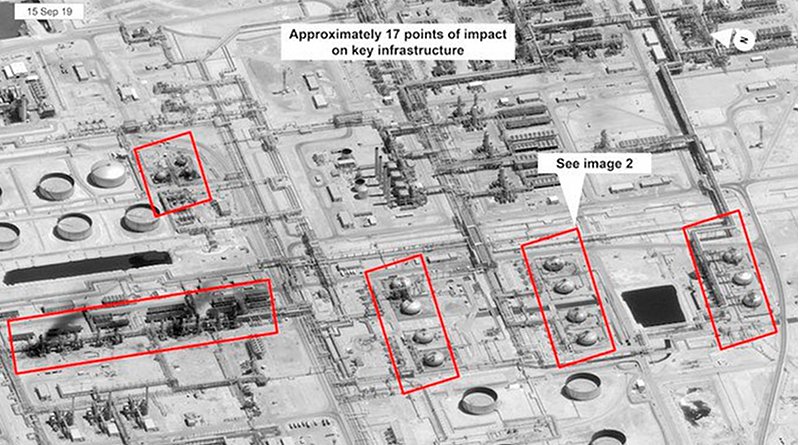Attack On Saudi Oil Facilities: This Isn’t Our Fight – OpEd
There is growing evidence that Iran was behind the recent attack on the Saudi oil facilities that destroyed a significant portion of their oil production capacity. Taking the evidence at face value, how should the United States respond to this act of Iranian aggression? This is an issue between Saudi Arabia and Iran, and the U.S. government should stay out of it. This is not our fight.
The answer might be different if Saudi Arabia was a helpless victim, but even if Saudi Arabia is a victim, it is not helpless. The U.S. government has already done its part by heavily arming the Saudis, and they are capable of retaliating themselves, thanks to their purchases of U.S. arms. Why should the United States fight Saudi Arabia’s battles for them, when we have already heavily armed them so that they can fight for themselves?
We don’t have to bomb them, of course. We could impose economic sanctions. But we’re already doing that. By arming Saudi Arabia and sanctioning Iran, haven’t we already tilted the playing field sufficiently in favor of the Saudis? Any conflict between Iran and Saudi Arabia is their business, not ours.
There is some thought that it would be a sign of weakness if the United States failed to respond, but is it really a sign of weakness to stay out of other people’s fights? I say again, this is not our fight.


I think there is a contrary view also published on this e-journal. https://www.eurasiareview.com/20092019-what-should-be-done-to-prevent-direct-iranian-hostility-on-us-assets-and-interests-oped/#comment-810011
I will not argue with a distinguished academic even though I have grave doubts about economics as science – like psychology, meteorology and alchemy, along with “personnel management” they all have very weak roots and don’t stand serious scrutiny. With due respect to Dr Holcombe, I’m afraid that the powers that be would not look to an economist for policy on the Middle East. While Pres Trump has sacked John Bolton, I have a great deal of respect for Bolton and others who perceive the dangers of governing by Twitter
Viewing from afar, there must be a way to rein in the mad mullahs and the Revolutionary Guard. Their grip on the Straits of Hormuz; interfering with oil exports and other shipping and confrontation with Saudi Arabia is a given. If the link develops between Turkey and Iran, I suspect the rather savvy Mr Putin will take full advantage. If the US is to be involved on this global issue, as it surely must be, then perhaps America could become the ringmaster of a well-constructed alliance. The French could contribute elements of the Foreign Legion, the Germans some re-engineered U-boats, and the likes of Spain and Portugal, warships. The British, not the United Kingdom will stand and shiver on the sidelines, wracked by internal division while trying to exit from Europe.
No one wants a war except perhaps the Iranians and Saudis. The only problem with letting them get on with it is that it will affect world economics, Dr Holcombe’s area of expertise. Inevitably other powers will be drawn into conflict and we will then see how estimates of Iranian military power and reach, undiluted by verbal garbage, stand up to reality and the view from the Pentagon.